Feng Shui Home

Feng Shui is an ancient Chinese practice that uses geomancy (the study of earth energy) to create a harmonious living space.
This technique has been used for thousands of years to improve the quality of life in homes, businesses and communities.
To understand how to use Feng Shui to beautify your home, you must first learn what feng shui is and how it works.
There are two main schools of thought when it comes to Feng Shui: the traditional school and the modern school.
Traditionalists believe that everything in nature is balanced by opposing forces, such as Yin and Yang.
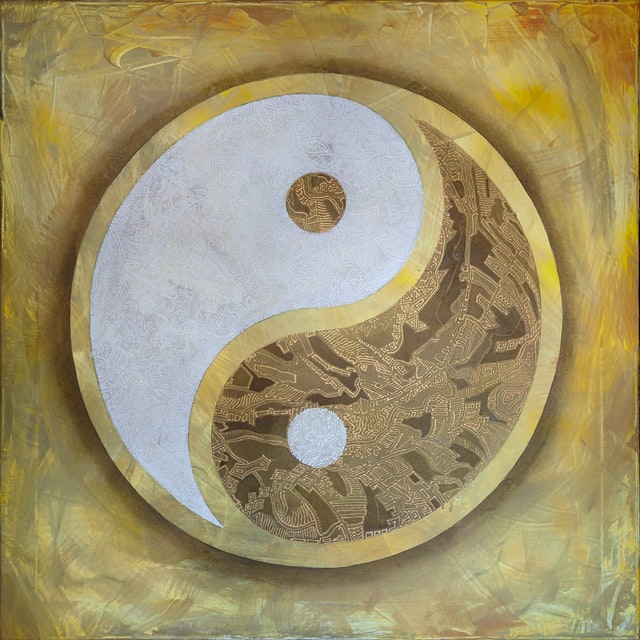
They believe that there is a balance between positive and negative energy in every object and space.
Modern practitioners believe that the universe is made up of five elements: fire, water, wood, metal and earth.
They believe that these elements interact with each other and influence our lives.
Both actually lead to the same goal, which is the regulation of universal energy (Chi)so that we can have abundant good fortune in this life.
External Factors of Feng Shui Home brings Hockey
Outside factors and the environment are the main factors in all Feng Shui lessons.
If the environment is not favorable, then no matter what, the formula we apply cannot produce good results compared to a favorable home environment.
Thus, external factors are very important in assessing the Chi strength of a property in Feng Shui.
External factors of Home Feng Shui can affect up to 70% in the procedure of making the area positive, so this becomes very important for Feng Shui practitioners who study Feng Shui San He or Feng Shui landforms.
Mountains or Dragon Path
Mountains are the first external factor to look at in Home Feng Shui.
Mountains are formed by the magnetic pull of the earth in relation to the constellations of stars in the sky in the study of Chinese Metaphysics.
So Mountainous features can produce Chi in the area and are often referred to in ancient languages
Feng Shui text as the Path of the Dragon.
Contrary to popular misconception, Mountains are a source of Yin energy and not Yang energy.
Many people assume the wrong thing.
Mountains are considered Yin energy because they do not move.
Quiet and peaceful, still and solid, this stillness represents Yin energy.
Where the Mountain is located in relation to your property is crucial to determining the quality of Chi in your home area.
Meanwhile, the so-called Dragon Path is a series of mountains that form an extraordinary land filled with Chi energy.
Of course not all Mountains or Dragon Paths will have a positive influence on your living environment area, often dry mountains, bad soil and full of stones will bring bad energy.
Even if there is no supporting Mountain or Dragon Path feature, we can create a Virtual Mountain in a suitable home direction location.
What does a Virtual Mountain look like? Basically, a mountain is a symbol of the earth's immovable ground, so large stone accessories, prayer altars, tall stone piles, and ceramic clay pots can also be helpful as Virtual Mountains.
It must be remembered that the energy created by the Virtual Mountain will not compare to the features of the true Mountains and Dragon Path.
Waters
Often mentioned in the ancient classics, "Water is the blood of the Dragon".
Mountains are the source of Yin energy, Water is the source of Yang energy.
Water borders can collect Chi in the area.
Therefore, regions with good Air placement and formation can promote good Chi convergence and collection.
When looking at the Water feature, we are more interested in the type and location of the Water.
Like the Mountains feature, not all Waters will be a positive influence on the area it passes through.
There are even times when murky, bad water brings negative energy to the occupants in its path.
Between the Mountain and Water, the flow of Yin energy towards Yang is a point called the Dragon Point where positive Chi flows.
Even if there is no supporting Water feature in your home area, we can look to the Virtual Water feature.
What is the shape of Virtual Water? Water is a flow of activity, so the most common form of Virtual Water that we encounter is a road.
It must be remembered that the energy created by Virtual Water will not be comparable to that of real Water features.
Good Direction for External Feng Shui Home
Based on the Feng Shui macro technique referred to as Direct Spirit Direction and Indirect Spirit Direction (Direct Spirit and Indirect Spirit), there are cardinal directions where the mountains and waters should be located, where they will bring even better energy, where the right time brings tremendous energy to the cardinal directions, if the location of the mountains and waters match these cardinal directions.
For Period 8 (2004 - 2023) and Period 9 (2024 - 2043), the corresponding wind direction locations for Mountains and Waters are as follows:
| Wind Direction | Origin Cave # | Direct Indirect Spirit |
| N | 1 | Water Features |
| NE | 8 | Mountain Features |
| E | 3 | Water Features |
| SE | 4 | Water Features |
| S | 9 | Mountain Features |
| SW | 6 | Mountain Features |
| W | 7 | Mountain Features |
| NW | 2 | Water Features |
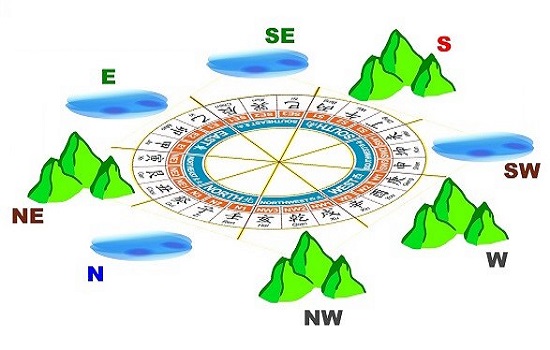
Internal Factors of Feng Shui Home for Good Fortune
We have already discussed the best Feng Shui areas in the internal features of your home in the article Feng Shui 101 However, we haven't discussed factors outside the 5 main areas of the house where positive energy can bring your feelings and thoughts to a more positive side using objects and images that are precious to you.
Basically, Home Feng Shui says that what we want is to focus our home interior changes on the areas that we use the most, especially the workspace, study room, entrance, bedroom, and kitchen (if you cook at home a lot), or balcony (more important for apartments).
In all these areas, we want the Chi energy to flow freely without being stopped or blocked by any pillars or enclosures.
It's good that the location of the space is also neutral, especially the roof does not span the pillars of the beam supporting the house or sharp decorations.
Here are some factors that can be considered to make your home area feel more comfortable.
Create a Positive Home Feng Shui Room
To start, you have to create an energetic space.
This means creating a space that feels calm and peaceful.
You should avoid using bright colors, loud noises, and heavy objects.
Instead, opt for neutral tones and soft lighting.
If possible, place plants indoors.
Plants are one of the most important elements in Home Feng Shui, symbolizing the wood element, where they can absorb negative energy and radiate positive energy.
Not all plants will function like this, so we need to choose good plants.
For example, don't use a cactus as a plant that you put inside your home.
Position the bedroom, workspace, kitchen and stove in rooms that have positive energy and are not obstructed by poles, pillars, or bad atmosphere or odors.
If your home feels comfortable and peaceful, then the Feng Shui of the house is usually good.
Good Kitchen Position for Home Feng Shui
The kitchen is an important area in Home Feng Shui research, especially if your family often cooks using the stove in this area.
Basically, this kitchen area is an area that can destroy negative energy, so it's good that the location of the kitchen is placed in a bad area, it's just that the direction facing the stove fire is facing in a good direction for your home.
How do you know the good and bad directions of your home? Please read about Feng Shui 8 Mansions here.
If possible, my recommendation is to place the kitchen and stove in the Five Ghosts (Wu Gui) or Spiritual area of your home based on Feng Shui 8 Mansions, as this will increase the spiritual energy that all living beings desperately need.
Or you can also put the kitchen and stove in the Life Threatening (Jue Ming) area of your home based on Feng Shui 8 Mansions, this will make the negative energy of that area dampened by the flames from your stove.
Another frequent recommendation is that the position of the stove and sink is not good if they are next to each other or opposite each other.
Home Feng Shui doesn't like conflicting elements to meet without another element, so if this is the case, try placing a plant between the stove and the sink.
The position of the stove on the kitchen island is also not good because we prefer a stable stove position in front of a solid wall.
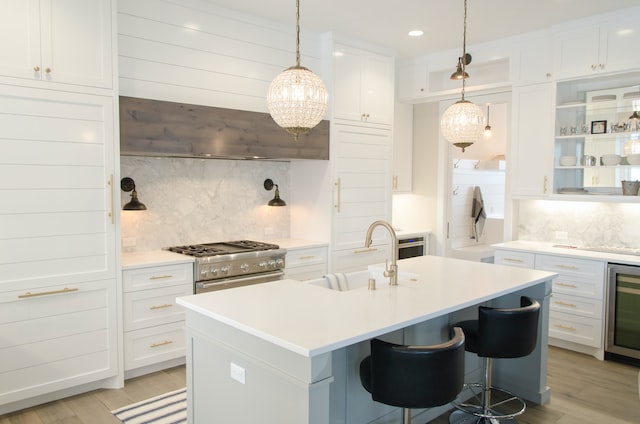
Never put the kitchen and stove in the central area of your home because the central area is the heart of your home that provides stabilization of your life.
Keeping a fire burning for a long time in the central area of the house will negatively affect all the residents of the house.
Do not place your stove under slatted ceilings, and never place your stove directly in front of a door.
Good Bathroom Position for Home Feng Shui
The bathroom is a location that is sometimes questioned in home or office Feng Shui consultations, but arguably the bathroom is a place that is rarely used for long periods of time, so it is not as important as other locations.
It is an ancient belief that bathrooms and toilets are places where negative chi gathers because of this.flush Our toilet water is considered a waste of wealth energy, which is not true.
We live in a different era where toilets are very clean and hygienic, so as long as the toilets are cleaned frequently, not dirty, not messy, then of course there is no negative energy gathering in them.
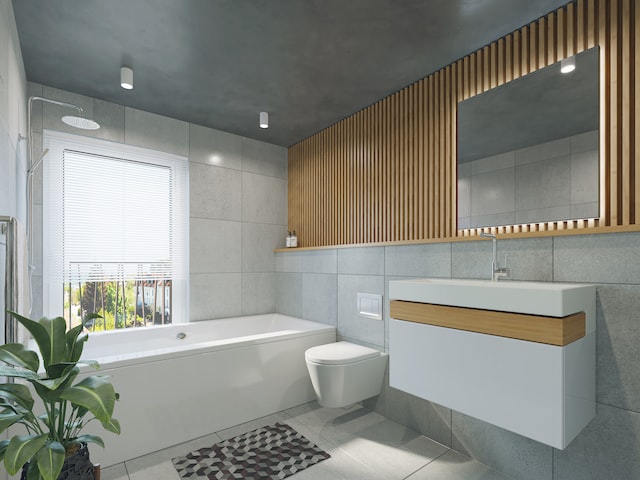
However, there are some locations that are not recommended as a place to put a toilet, one of which is the toilet above the entrance of the house.
According to Home Feng Shui, toilets located right in the entrance box of the house can cause excessive water chi and can have a negative impact on the occupants of the house.
A toilet above the stove can also cause water and fire chi to fight and make the atmosphere uncomfortable, but this only happens when the distance between the kitchen floor and the kitchen ceiling is below 4.5 meters.
Another one is the toilet directly above the bed, which can also be uncomfortable, especially if the room height is below 3.6 meters, but it is easy to move the bed to another place to avoid this.
Room doors that face directly to the toilet door are also not recommended, it is better to put a barrier between the two doors.
Finally, try not to build a toilet directly in front of the stairs down or stairs up, this will inhibit the flow of chi in your home so that the chi stagnates in areas that are rarely used.
Hockey Pictures and Paintings for Home Feng Shui
Often the question of which paintings or pictures to install according to Feng Shui is asked.
Suitable pictures and paintings will make the interior atmosphere abundant with good energy.
This is one of the easiest ways to change the atmosphere in the house and adjust one's emotional state when looking at the painting.
Hence it is very important to place a suitable painting in a suitable room to bring more luck.

Lucky pictures can not only liven up a home with stylish decorations, but they can also do double duty in managing energy for home feng shui.
Whether you like it or not, paintings play a role in home feng shui in various ways.
Increase the positive Chi energy that your home receives from the cosmos.
Weaken the negative Chi energy caused by Sha Chi sources.
Make your thoughts match the conditions you want, such as focused in the study and workspace, relaxed and casual in the bedroom, happy and healthy in the dining room, and so on.
It is good to know that painting can bring hockey not because it changes the external energy flow, but more often because it brings your internal energy flow more in line with the activity you will be doing.
Therefore, from the selection of meaningful paintings and drawings, it is good to organize and select by considering the subject, color, location, and orientation.
Main Door Design and Color for Home Feng Shui
The main entrance to your home is where the universal chi energy begins to enter your home, making it the most important area in measuring the Feng Shui of the home.
Broadly speaking, we want the entrance of the house not to be obstructed by anything when looking in or looking out from the position of the door.
Ensure that there are no telephone poles, electricity poles, lamp posts, large trees or any pillars in front of the main door of your house, as these can block chi energy from entering the house properly.
It is recommended that the door design is not too excessive and do not put the door under the beams or dark areas so that the entrance is less visible, because we want chi to be able to enter freely into the house.
The color of the entrance door has little effect on the chi energy affecting the house, but it's worth coloring your front door according to your goals and desired results.
Red Main Doors can bring good energy to homes especially those facing South, especially if you want to be famous, visible, sought after by others.
In Home Feng Shui, the color red and the fire element bring warmth, passion, and inspiration.
The Brown Main Door can bring earth energy to homes especially those facing Northeast or Southwest, and this means balance in life, fostering your connection with family and nature.
The Blue Main Door can bring water energy to houses especially those facing North especially if you want to seek higher knowledge, pursue a new field, or study to the next level.
The Green Main Door can bring wood energy to homes especially those facing East or Southeast; wood energy symbolizes the power to expand and grow your life.
The White Main Door symbolizes metal energy to houses especially those facing West and Northwest; metal energy brings the power of communication, perseverance, and happiness.
Fortune-Bringing Plants according to Home Feng Shui
If we follow the lessons of the 5 elements, then there is always a way to dim the negative energy around us, one of which is to use the right element to weaken the negative energy.
Plants are an easy way to bring the wood element into the home and can serve as solvents or diverters and blockers of chi energy.
The types of plants are of course important for the residents of the house, because plants can also change the feelings of the residents of the house.
In general, any type of plant that has thorns is viewed negatively in Home Feng Shui.
The same can be said about plants that take on a spiky shape.
Below are 3 examples of plants that are said to bring hockey and fortune to your home Feng Shui.
1. Bambu Rejeki
Bamboo fortune is low maintenance and very easy to maintain.
They can grow in water or soil, and favor areas that receive sufficient but not excessive light.
Keep away from direct sunlight to avoid burning the leaves.
Water regularly if you are growing them in soil, and change the water frequently if you are growing them in water.
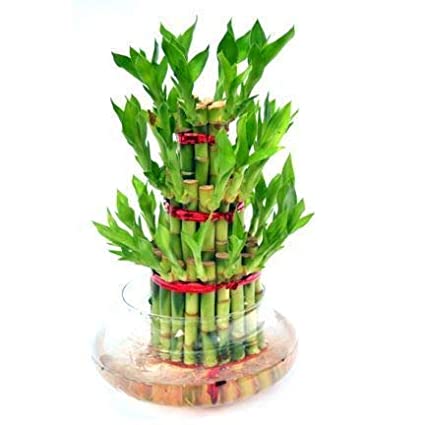
2. Jade Plant
The main purpose of keeping this plant at home is to usher in good luck.
You may have seen potted jade at the entrance of Chinese restaurants.
By the same logic, we can place the jade plant as close to the entrance of our home as possible.
As with other plants, make sure the jade plant you choose is healthy, with strong branches, leafy, jade-colored leaves.
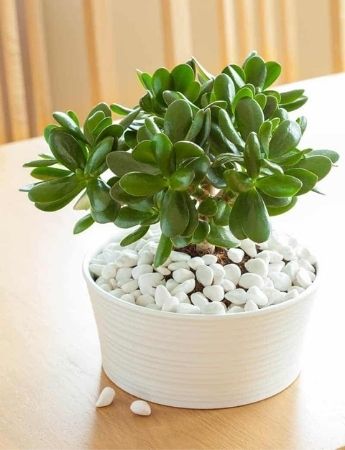
3. Sage Plant
The flowers and leaves of the sage plant can be eaten or mixed in various dishes as well as traditional medicine.
Not only used as a flavor enhancer for dishes, sage is also known to have a long history as a remedy for mental illness and digestive problems.
Sage is also known to ward off negative energy and has cleansing qualities.
According to Home Feng Shui, the sage plant helps eliminate negative energy in the home and also has medicinal properties and a strong aroma.

Feng Shui House taboos
In building a house following Home Feng Shui recommendations, most of the rules and restrictions are visible from a sharp angle that can be seen from the side of the door (all doors not just the main door).
Since the door is the way for chi to enter, it should be wide and tall enough for the householder to enter the door comfortably.
All sharp corners and pillars that look parallel to the door will bring unfavorable energy into the house.

Then the middle area of the house should be used as an empty area and not a closed room, kitchen, or stairs or toilet.
This is because in the teaching of Feng Shui, the flow of chi is very happy with bright and open areas, where energy can flow and rotate from the center of the room to all corners of the house.
All rooms, especially those that are frequently used and occupied for more than 4 hours per day, should be clean, tidy, bring happiness, and not have unpleasant odors.
Psychologically, bad odors make people uncomfortable in the area, so how can we use a dirty room as a place to sleep or work; clean it first and flow good energy into the room that will be used for a long time.
Isn't it easy to follow our Home Feng Shui advice?

